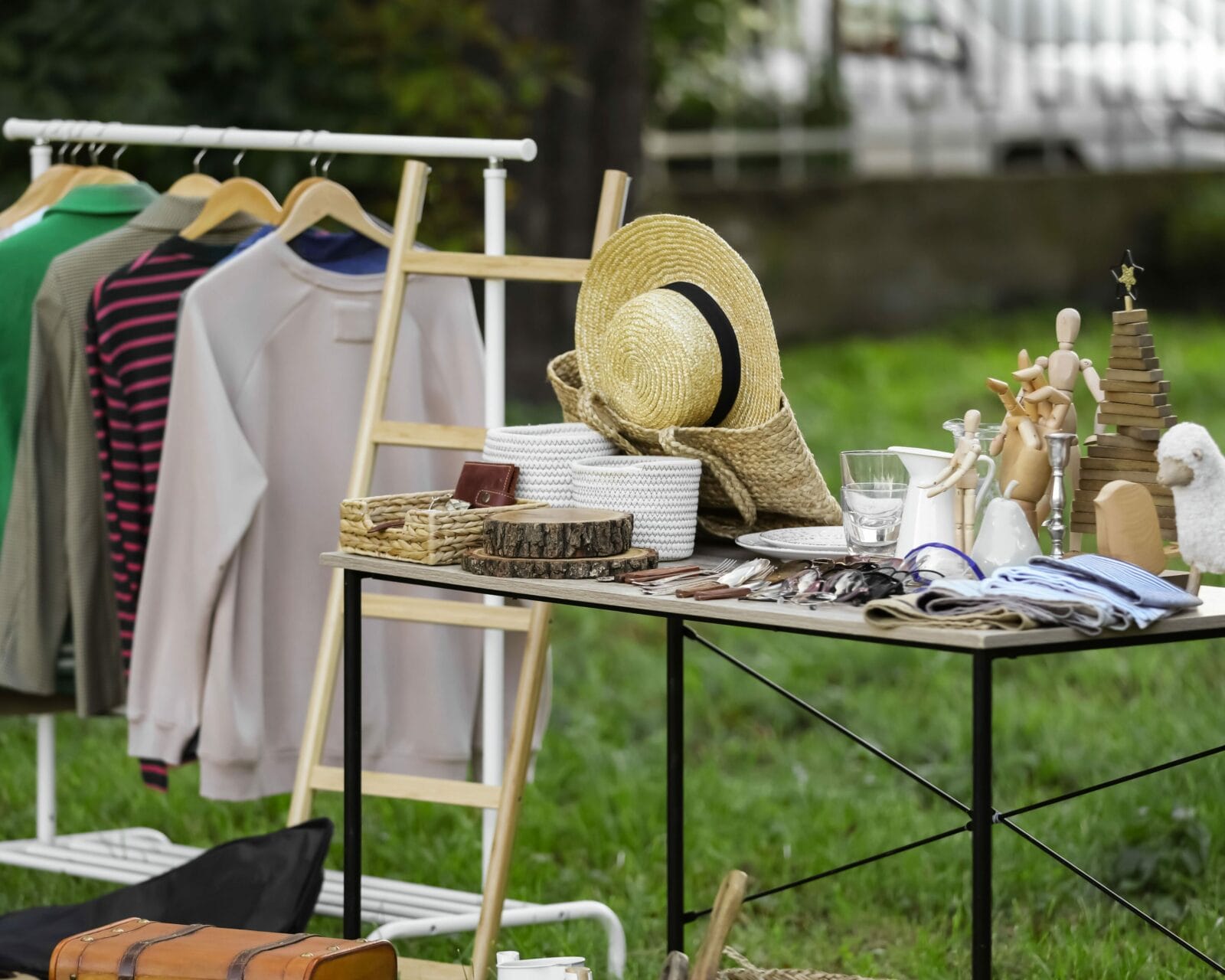Estate sales are a great way to recoup the value of belongings you no longer need or want. There are many reasons to have an estate sale. If a loved one has passed away, you may find yourself suddenly tasked with taking care of all of their furniture, belongings, and perhaps even their home. An estate sale is a great way to find new homes for items you don’t have a need or use for. An estate sale can also be a good way to downsize for seniors moving to a senior living community. Since many senior living communities have fully furnished apartments, you may no longer need much of your furniture, cooking and cleaning equipment, or decor. Wondering how to organize an estate sale?
For seniors who are moving to a senior living community, an estate sale can provide a financial cushion to help pay for their room and board. For those who are managing the belongings of a loved one who has passed, estate sales are a good way to make sure these treasured items go to someone who can use them, while also generating some income for funeral or medical expenses.
Feeling unsure about how to organize an estate sale? Putting together an estate sale can be overwhelming, especially if you’re dealing with a lot of things that need to find a new home. This article will provide a step-by-step guide to make this big job a little easier!
Step One: Get Ready for Your Estate Sale
Before you put up your “estate sale” flyers all over town, a little preparation will go a long way. You don’t want to sell items for far less than they’re worth and lose out on valuable income. First, get a general idea of how much you have for sale and about what things will be worth. An appraisal might be a good idea if you or your loved one has valuable items like fine jewelry, collectibles, antiques, classic cars, or other things that would be worth more than a few bucks. A local appraiser can come and give you an idea of what these higher-value items are worth, and may even be able to auction them off for you. You could also sell these items individually, on sites like Ebay or online social media marketplaces. This is likely to give you a higher return than you’d get at an estate sale.
For everything else, have a general plan and goal. Do you need or intend to make a certain amount of money, or do you just want to sell everything? Will you be open to offers, or are prices non-negotiable? What will you do with unsold items after the sale? Donating to a local charity is often a good way to handle this.
Now, you need to price all of the things you have for sale. Move anything that will go to an appraiser, auction house, or will be sold separately from your estate sale. Figure out a pricing strategy for the rest. For example, all clothing pieces could be priced at $2, large furniture pieces $200, small furniture pieces $100, etc. The prices you choose depend on the quality of the items you’re selling, and the income level of the area where your estate sale will take place.
Step Two: Marketing Your Estate Sale
You’ll make the most money if you have a wide audience for your estate sale. So, it’s time to get the word out! Create brightly colored, eye-catching flyers to post around the community and neighborhood. Make sure to post flyers in legally approved areas, like community center bulletin boards. Include the date, time, and address of the estate sale, and maybe highlight a few items or categories of items that you’ll be selling.
Don’t forget the internet and social media! Most people in today’s world find out about estate sales online. Post on your personal social media pages and invite others to share about your sale. Also add posts in local “Yard Sale” or “Estate Sale” groups, and highlight a few items with the details of your sale on classifieds sites like Facebook Marketplace.
You can also let local antique dealers, auction houses, and collectors know about your sale. They may help spread the word and direct potential customers to your sale. If your local area still has a newspaper with a “Classifieds” section, it may be a good idea to advertise your estate sale there too.
Step Three: How to Set Up Your Estate Sale
Now that you’ve prepared for and advertised your sale, it’s time for the big day. Choose a suitable location for your estate sale. Usually, estate sales take place at your property or your inherited property, which eliminates the need to transport items to another location. If the property isn’t in an accessible location, you could also use a local event space or community center.
The night before the sale, set up tables and organize your items. Group things by category. For example, use a rack to display clothes on hangers, or fold clothes on a table. Other grouped categories might include:
- Tools & Home Improvement
- Household Items (dishes, decorations, etc)
- Mixed Media (books, magazines records, CDs, DVDs, VHS tapes, etc)
- Small Appliances
- Hobby Items
Your items will appear more valuable if you arrange them to look their best. Also consider the flow of the space, and how people will be able to move around the groups or tables to browse.
Once everything is grouped and arranged, add price tags or signs that clearly indicate prices. To simplify matters, people often designate prices by categories. For example, all clothing items might be priced at $5 each. If you’re pricing items individually, make sure they are clearly marked. Don’t forget to label any items that don’t work or don’t work well, to demonstrate transparency and help buyers feel comfortable trusting you.
Finally, gather up some cash and coins, so you can offer change to buyers. Designate a “cash box” where you can organize the cash and more easily make change. You may also want to set up an online money transfer account, like Zelle or Venmo, so buyers can pay you digitally. This is very likely to increase your revenue, since most people don’t carry a lot of cash these days.
Step Four: Selling and The Aftermath
Now all you’ve got to do is get this estate sale going! If it’s a large sale, you may want to recruit some family members or friends to help you out. Keep an eye on valuable items to prevent theft. Make yourself available to answer questions and help shoppers find items they’re looking for. If you’re open to negotiations, have an idea of the lowest price you’d accept to expedite the process.
After the sale, donate or dispose of any unsold items. Finally, count the proceeds of the sale, and decide where the money is going to go. You did it!
Stellar Living hopes this helps you know how to organize an estate sale for yourself or a loved one. Considering senior living? Tour a Stellar community near you today.




